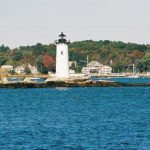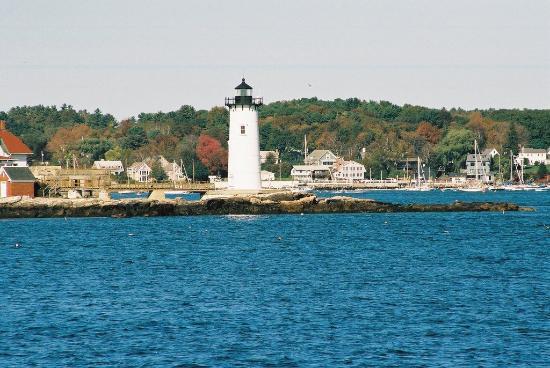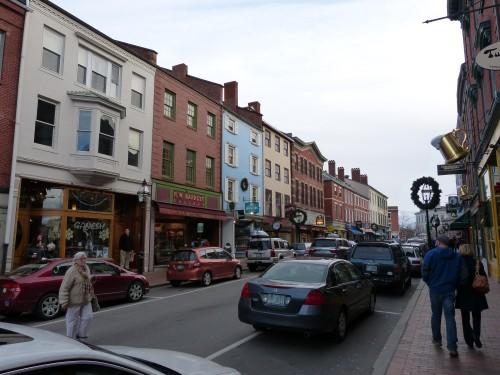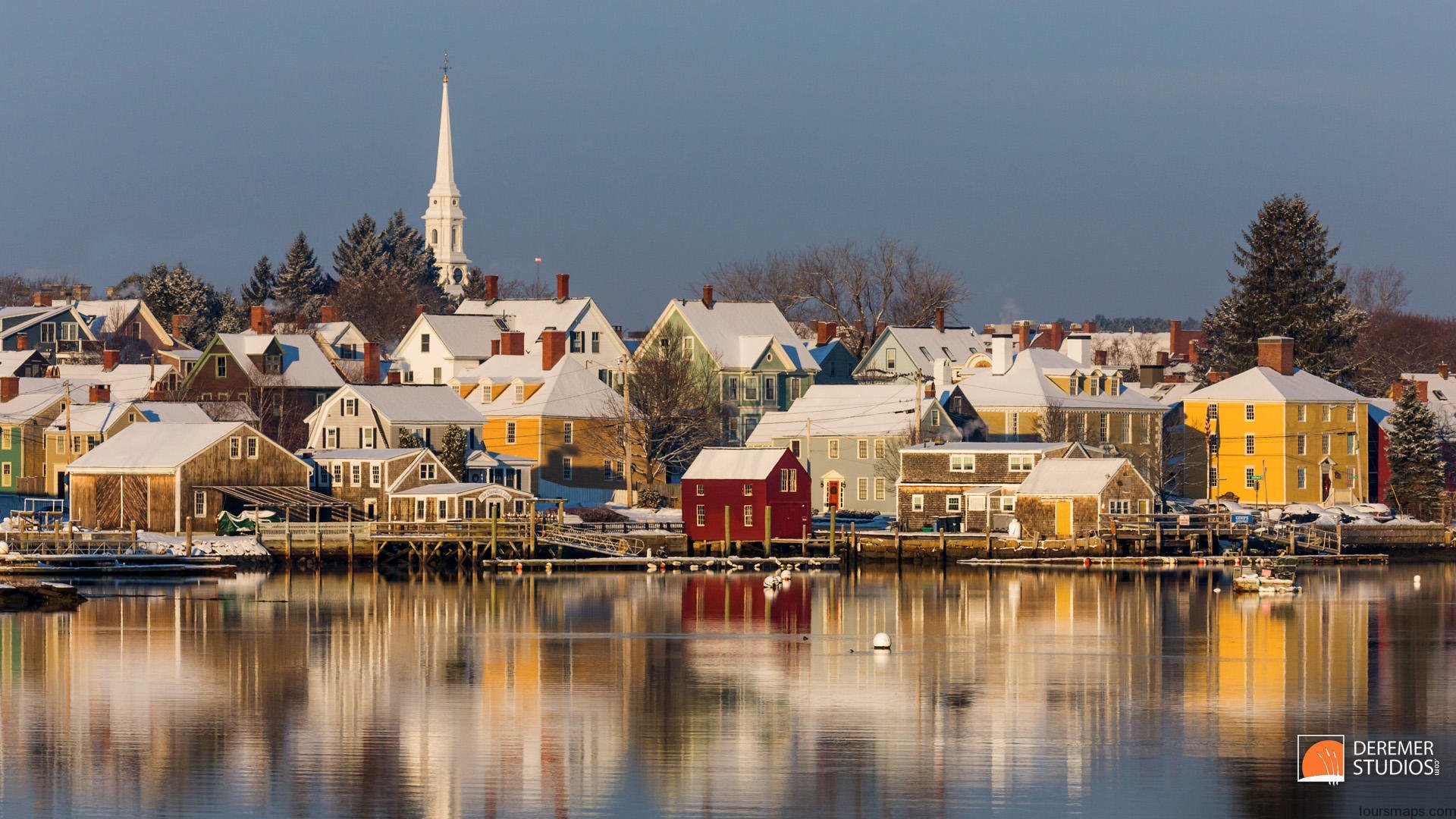The earliest inhabitants on the site of Portsmouth were most likely bandof Pigwacket and Piscataqua natives, and their first meetings with English traders
and fisherman were largely peaceful exchanges. Early English forays into the region were sporadic and carried out by small parties, and, as such, did not
pose a serious threat to native cultures. Natives along the coast served as middlemen between interior tribes and the English in a small-scale fur trade.
For most of its early history, New Hampshire was divided between Puritan immigrants, including some who had been exiled from the much larger
Massachusetts Bay Colony, and a mix of adventurers, farmers, and fisherman who concentrated more on turning a profit than creating a utopian society.
By 1640, there were four towns in the region that would become New Hampshire. In Strawbery Banke (later, Portsmouth), the older class of adventurers
held sway, while Puritans controlled Exeter and Hampton. Hilton’s Point (today’s Dover) was home to a large population of fishermen, although the town’s
inhabitants shifted between Puritanism and the more worldly concerns of making money. Throughout the seventeenth century, the Puritan leadership of
Massachusetts Bay claimed New Hampshire and tried to annex it with help from inside the four towns but, in 1679, the Crown declared the two
colonies separate.
Portsmouth depended on Atlantic trade; for this reason, town life was very much oriented toward the sea. A flourishing trade developed in naval stores,
and demand for New England’s white pine masts and spars spiked in the years of maritime conflict between the English and the Dutch. Naval products
were not the only way to make a living in Portsmouth. Farming remained key, and, as the local economy picked up, speculation in real estate also
provided early settlers with a way to wealth.
Neighboring Puritans would criticize the Piscataqua River region for fostering a culture of degeneracy, drunkenness, and prostitution, but Portsmouth was
not entirely devoid of religious feeling. On several occasions, leading Congregationalists tried to woo preachers from Massachusetts, and they, in turn
tried, and failed to establish a church. There were too many people indifferent to religion, but in 1671, a Congregational Church was established.
The establishment of royal government brought a new set of problems to Portsmouth. The royal lieutenant governor, Edward Cranfield, succeeded only in
alienating all of the people who had governed previously by punishing smugglers and attempting to curb the power of the church. Another experiment in
colonial control, the short-lived Dominion of New England, further muddied the waters of colonial politics. Some of Portsmouth’s leaders decided to rejoin
Massachusetts, while others withheld payment of taxes to voice their concerns about such a move. Massachusetts’s 1691 charter did not include the four
New Hampshire towns, so the colony remained effectively independent.
Portsmouth continued to prosper in the eighteenth century as Britain emerged as the world’s foremost naval power. Sail makers and rope manufacturers
joined mast producers and lumber mills to drive the town’s economy forward. Portsmouth became home to a large class of artisans who worked in and
around the shipyards. Although local trade was important, Portsmouth remained intimately tied to the larger Atlantic world.
Ships made in New Hampshire took regular trading voyages to the West Indies and England. Farmers in the area surrounding Portsmouth had increased
access to imported goods, including salt, sugar, molasses, and rum.
The upheavals of the eighteenth century had a profound effect on Portsmouth. As in other colonies, a small, but vocal Sons of Liberty movement rose in
opposition to the Stamp Act of 1765. The Portsmouth Sons of Liberty pressured the stamp collector to resign, and the governor had little desire to
provoke unrest by enforcing the act. The Townshend Duties that followed the Stamp Act were a different story, and royal officials and some Portsmouth
residents did not oppose the taxes nearly strenuously enough for the Sons of Liberty.
The crisis leading up to the War for Independence revealed deep divisions in Portsmouth. The governor pressed for legislation to control unrest, but the
colonial legislature ignored his requests, prompting him to adjourn, and later dissolve, the House of Representatives. The Portsmouth Committee of
Correspondence was instrumental in coordinating colony-wide resistance to royal policies, as well as intercolony resistance.
In the wake of the fighting at Lexington and Concord, New Hampshire’s already weak royal government fell apart. Meeting at Portsmouth, the House of
Representatives took measures to separate from England. The war itself took place entirely outside of New Hampshire’s borders, though the state did
contribute significantly to the Revolutionary cause.
Matthew Jennings
See also: New Hampshire; New Hampshire (Chronology).
Bibliography
Daniell, Jere R. Colonial New Hampshire: A History. Millwood, NY: KTO, 1981.
Heffernan, Nancy Coffey, and Ann Page Stecker. New Hampshire: Crosscurrents in Its Development. Rev. ed. Hanover, NH: University Press of New England,
1996.
Portsmouth, New Hampshire Photo Gallery
Maybe You Like Them Too
- Top 10 Islands You Can Buy
- Top 10 Underrated Asian Cities 2023
- Top 10 Reasons Upsizing Will Be a Huge Travel Trend
- Top 10 Scuba Diving Destinations
- The Best Cities To Visit in The World






